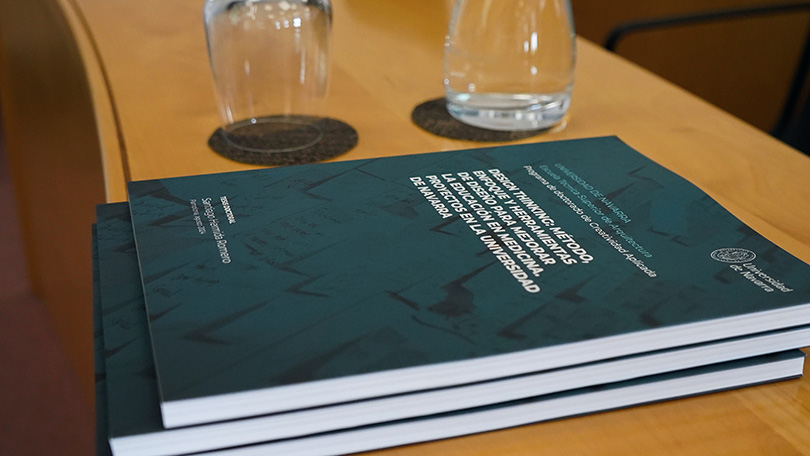Last Friday, November 15th, Santiago Hermida defended his doctoral thesis entitled 'Design thinking, method, approach and tools from design to improve Education in medicine: projects at the University of Navarra'.
Design Thinking (DT) is an innovative problem-solving approach that has been implemented in the medical Education (EM) of the University of Navarra since 2016, with the purpose of transforming both teaching of Degree and postgraduate program. The method seeks to foster practical, multidisciplinary and partnership focused skills, essential elements in the training of health professionals. In its thesis , Santiago seeks to assess the validity of DT as an effective methodology in medical Education , delve into the problems and actors in the field educational, identify opportunities for improvement and co-create solutions tailored to the specific needs of students and teachers.
Santiago tells us what the process of research has been like and what he has learned from it:
What motivated you to investigate the application of Design Thinking (DT) in the medical Education ?
I was fortunate enough to learn about Design Thinking in 2010, while I was studying at Master's Degree where we were told about this methodology. Months later, as part of the activities of Master's Degree, I traveled to San Francisco to meet innovative companies and their ecosystem, which took me to Stanford and the d.school of that university, considered the cradle of Design Thinking. Since then I have not stopped reading, practicing and training in this methodology. Moreover, my connection with medicine has a root staff: my wife is a physician and also a professor at School of medicine. Sharing our passions in a mutual way ended up leading, almost inevitably, to accept that it made sense to take advantage of this innovative methodology to try to improve the medical Education .
What would you highlight of the learning process during the realization of doctorate?
-That there is always something new to learn. Learning is always interesting and valuable, and accepting that someone can teach you something you don't know, even at the highest levels, is a lesson core topic. On the other hand, doctorate is demanding in many ways. One of the most important lessons is about oneself: managing emotions, organizing work and overcoming personal challenges. In addition, you have to face the impostor syndrome; when generating original content, you go through moments of euphoria, fear and doubts. Learning to manage these emotions is also part of the process.
What do you consider the most difficult part of your doctorate?
-Probably the management of the time. Compatibilizing the doctorate with my work and my family has been a challenge. During these years I have had to prioritize hours and hours of studying, writing and development projects to give shape and content to the final thesis .
After submitting your thesis , what do you keep after these years of doctorate?
-I keep the whole experience. The beautiful, without the hard, would not be worth as much. I have learned a lot, not only about topic from research, but also about communication, preparation, partnership, negotiation, management of time and many other things. Of course, I greatly value the support of my family. My wife and children have been by my side, each in their own way, and my wife in particular has been a great pillar during this process.At summary, I am proud to have taken on this challenge and brought it to fruition. Like any challenge, it had some good moments and others not so good, but it is always important to surround yourself with good traveling companions.
